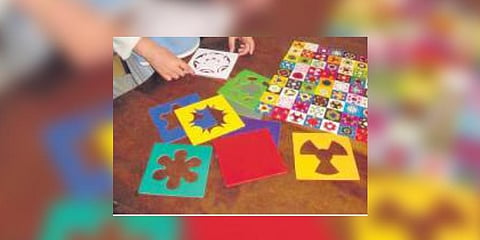

"There is nothing wrong with you,” was the comment Sarita (name changed) would usually hear from her doctor when she went to him as a 16-year-old girl, complaining of terrible menstrual and joint pain. The Kochi resident had experienced chronic kidney problems and fatigue well until middle age. She was often feverish. Another doctor diagnosed her as depressive and prescribed antidepressants. Until she visited her son in Dubai. The specialist there quickly diagnosed her with lupus. What was the difference between the three doctors? The last doctor had the O quotient.
It is undeniable that no two people are the same. On the contrary, a common belief is that smart people, with the necessary training, can achieve the best results, irrespective of factors like skin colour or social background. New research suggests that this conclusion is not supported by facts. Some are indeed better than others at learning to discriminate objects using touch, smell and taste, no matter what the article is, which explains why one wine drinker can discern bouquets in a glass of red that eludes another wine drinker, or why an amateur astronomer can identify stars which experts cannot. Behavioural scientists researching intelligence have discovered that people with high ‘O’ are better at estimating the average total of several objects they are presented with. Or recognise stuff by merely touching them. They rely on perceptual skills to arrive at conclusions.
The world is experienced, understood and interpreted using the perceptual skills of the central nervous system. They are spatial relations, discrimination, memory, closure and constancy of form. These skills are vital in navigating everyday tasks such as feeling for the light switch or choosing a fabric. But they become vital when important tasks are at hand such as a storm specialist reading satellite imagery or a doctor diagnosing a difficult condition. The popular belief is that everyone recognises objects in their surroundings using the senses more or less in the same fashion, but research has found this to be untrue. At the beginning of the 20th century, tests discovered a correlation between cognitive performance related to memory, math and language skills. So someone who can crack crossword puzzles easily can also remember where they put their glasses.
This changed the understanding of how predictive intelligence worked. Researchers at Vanderbilt University, while have learned that some people are good at identifying both birds and aeroplanes. People are known to generally make decisions based on visual information using experience and training. But not everyone starts at the same base level when they begin skill training. To exclude advantages of experience and background, the researchers measured the abilities of participants with computer-generated artificial objects they couldn’t ever have seen. They were told to remember and recognise objects and match them. They were then asked a range of questions: Are two objects identical despite seeing them from different angles? Which option has an average of four robots on the right? They found major differences both in perceptual abilities and cognitive skills of the volunteers—an ability they named ‘O’ for object recognition. The ‘O’ quotient does not follow common rules. For instance, the perpetual skills of all people good at studies are not all equal. When they paired students with and without radiological expertise to detect lung nodules in chest X-rays, those with the highest ‘O’ scored better—even the students without radiological expertise.
The findings showed that selecting medical students based on current concepts of intelligence does not guarantee the best performance in specialisations that need perceptual skills. These studies, if recognised and applied to everyday situations, can change everything, from HR to marriage choices. It could also upend conventional intelligence studies. The emphasis will be on innate talent over environmental advantages. So, a village boy who doesn’t know English can do better in math than a student from an affluent urban background who is also good at math but has a low ‘O’. Researchers believe that learning more talents beyond skills related to intelligence can lead to better performance and determine overall ability.